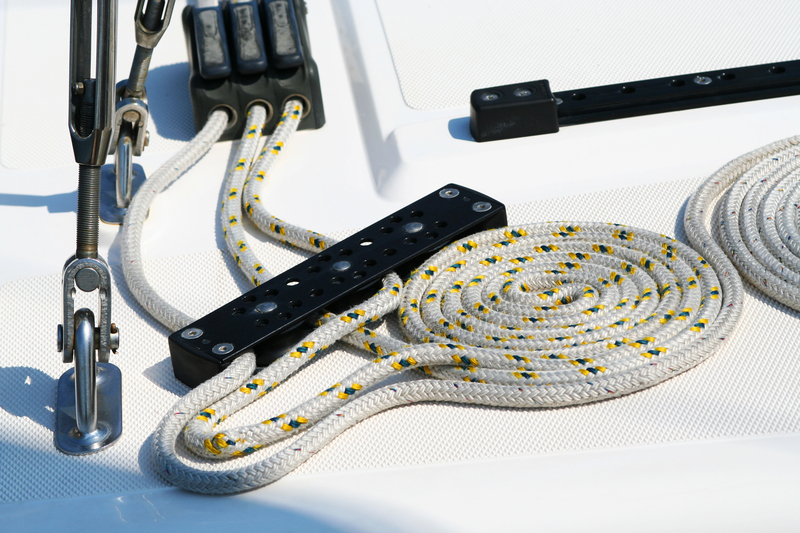Sound Reasons for Avoiding Solo Piano Moving Ventures
Posted on 26/05/2025
Sound Reasons for Avoiding Solo Piano Moving Ventures
Moving a piano might sound straightforward at first. However, it's a unique challenge fraught with hidden risks and technical obstacles. If you're contemplating a solo piano moving venture or considering enlisting untrained help, you should pause and reconsider. This comprehensive article outlines compelling reasons to avoid moving a piano by yourself. Whether you have a beloved upright or a stunning grand piano, the stakes are high, and your musical investment deserves careful attention. Let's explore why hiring professional piano movers is the wisest approach--and the reasons you should never embark on solo piano moving.
Understanding the Complexity of Moving a Piano
Pianos are not ordinary pieces of furniture. Their sheer weight, shape, and fragile mechanics make moving them a complex task. Even the "simplest" upright piano can tip the scales at over 300 pounds, while grand pianos may weigh upwards of 1,200 pounds. More importantly, they're intricate musical instruments with hundreds of finely tuned parts.
- Size & Weight: Most pianos are bulky, top-heavy, and difficult to grasp securely.
- Delicate Internal Mechanism: Each key, hammer, and string is precisely positioned. A jolt or jar can mean costly repairs or permanent damage.
- Irreplaceable Value: Many pianos are cherished family heirlooms or expensive investments.
The complexity of the instrument--and its emotional and financial value--are fundamental reasons for avoiding solo piano moving.

The Risks of Moving a Piano by Yourself
1. Physical Injury Hazards
One of the most alarming dangers of moving a piano yourself is the risk of injury. Lifting and maneuvering a massive, heavy instrument without professional training can result in:
- Smashed fingers or toes
- Back strains, sprains, and herniated discs
- Shoulder, neck, or knee injuries
- Slip and fall accidents--sometimes serious enough to warrant a hospital visit
No instrument or moving cost savings are worth jeopardizing your health. Remember, piano movers undergo extensive training, use specialized lifting techniques, and wear appropriate safety gear.
2. Risk of Irreparable Damage to Your Piano
Self-moving a piano exposes it to significant risks of damage. Pianos are extremely sensitive to movement, vibration, and sudden impacts. The consequences can be severe:
- Cracked or scratched wood finishes
- Broken legs, pedals, or wheels
- Misaligned or broken internal components (strings, action, soundboard)
- Permanent detuning or loss of tonal quality
- Structural frame warping or damage
Even slight bumps or rapid temperature changes during an unprofessional move can drastically harm your piano's sound and stability. Repairing or restoring a damaged piano often costs significantly more than hiring expert movers in the first place.
3. Potential Harm to Your Property
A piano's considerable weight and unwieldy shape make it a hazard for floors, walls, door frames, and stairwells. When you attempt to move a piano by yourself, you risk:
- Dented or damaged walls and door frames
- Broken tiles, scratched hardwood, or dented stair treads
- Destroyed carpets and rugs
- Gouged paint and chipped corners in hallways
Repairs to home interiors can be expensive and time-consuming--not to mention the risk of voiding homeowner insurance policies. This is a strong argument for relying on trained piano movers with the right equipment and insurance coverage.
Logistical Challenges of Solo Piano Moving
Inadequate Equipment
*Professional piano movers* use specialized equipment. A solo mover usually lacks:
- Heavy-duty furniture dollies and skids
- Padded protective blankets and straps
- Ramp systems for stairs and truck loading
- Custom-moving boards for grand pianos
Without these tools, the risk of critical damage or injury during your solo piano moving venture increases dramatically.
Transportation Issues
Transporting a piano isn't as simple as using a pickup truck. Professional piano movers employ padded, climate-controlled vehicles designed to prevent vibration, jostling, and exposure to temperature extremes. A DIY move without these protections can:
- Jostle delicate components out of alignment
- Allow temperatures or humidity to warp the soundboard
- Expose the finish or internals to dust, debris, and moisture
AVOID solo piano moving attempts, especially for long-distance or interstate moves.
Lack of Experience and Preparation
A successful piano moving process requires more than muscle power. It requires:
- Advance planning and preparation
- Site assessment and route mapping
- On-the-fly problem-solving for tight turns, stairs, or narrow corridors
- Knowledge of the correct techniques for lifting, tilting, and positioning
Without years of hands-on experience, most solo movers face obstacles that put the piano, themselves, and the building in peril.
The Financial Reality--Why Solo Piano Moving Isn't Worth It
Potential for Expensive Repairs
When weighing the cost of professional piano moving services against a do-it-yourself approach, consider the potential cost of:
- Piano tuning after a bumpy ride
- Rebuilding or repairing broken action or strings
- Restoration of damaged woodwork
- Professional cleaning for dust, debris, or water damage
These expenses can easily dwarf the price of hiring a pro from the outset. In some tragic cases, amateur movers cause irreparable damage, destroying the instrument's value altogether.
Insurance Gaps
Most standard homeowner or renter insurance policies do not cover damages caused during DIY moving attempts. By contrast, professional piano moving companies are insured and bonded for accidental damage, so you have peace of mind during every step of the process.
Emotional and Sentimental Risks
Many pianos have deep personal or family significance. Moving such an item yourself not only puts your investment at risk, but it also jeopardizes sentimental value that money can't replace. Professional movers treat each piano with reverence as well as technical skill, honoring its place in your home and your family's memories.
Piano Moving Myths Debunked
"I can save money moving my piano myself."
Initially, a DIY move may seem budget-friendly. Yet, as shown above, the combined risks and potential repair, replacement, or medical costs often mean hiring professionals is more cost-effective in the long run.
"A few strong friends can get the job done."
While extra hands help with basic furniture, piano moving requires specialized knowledge about weight distribution, angle of movement, and routing. Even the sturdiest friends are no substitute for trained experts.
"We only have to move it across the room/upstairs--how hard can it be?"
Most piano accidents happen during short-distance moves within a home, not just during transport. Uneven floors, stairs, carpeting, and sharp turns pose serious threats at every stage.
The Advantages of Choosing Professional Piano Movers
Expert Handling and Equipment
- Movers with specialized training and years of experience
- Use of custom equipment and tools designed for safe piano movement
- Careful protection of delicate internal parts
Full Insurance and Liability Protection
- Coverage for accidental damage
- Peace of mind throughout the move
Preserving Your Piano's Value
- Professional handling maintains your piano's condition, sound, and value
- Prevents needless wear, damage, and the need for expensive future repairs
Efficient, Stress-Free Moving Process
- Comprehensive planning and site assessment
- Punctual, organized, and safe transport
- Correct set-up in your new location, ready for use

Frequently Asked Questions About Piano Moving
Is moving a piano really that different from moving other heavy furniture?
Absolutely. Pianos have uneven weight distribution, delicate parts, and are far more sensitive to bumps, jostling, and environmental changes than typical furniture. That's why specialized expertise is crucial.
Can I move an upright piano by myself if it's just going a short distance?
Even "small" moves inside your home can result in significant harm to the piano, your property, or your health. A short trip over uneven flooring or stairs can result in disaster.
What does a professional piano mover actually do that I can't?
Professional movers assess your piano, your home's layout, and use specialized equipment and proven safety protocols. They also secure your piano during loading/unloading and transport, offer full insurance, and protect both the instrument and your property.
Final Thoughts: Why You Should Avoid Solo Piano Moving Adventures
Piano moving shouldn't be a solo undertaking. The risks to yourself, your precious piano, and your property far outweigh any potential savings or convenience.
- Injury risk is high
- Damage to the instrument may be irreparable
- Costly property accidents are likely
Don't gamble with your health or your beloved instrument.
Save yourself the stress, expense, and regret.
The soundest reason for avoiding solo piano moving ventures is simple: your music deserves the best care.
Entrust your piano--upright, baby grand, or concert grand--to professional movers who understand the unique challenges and will ensure it arrives safely at its new home, perfectly preserved and ready for years of enjoyment.



